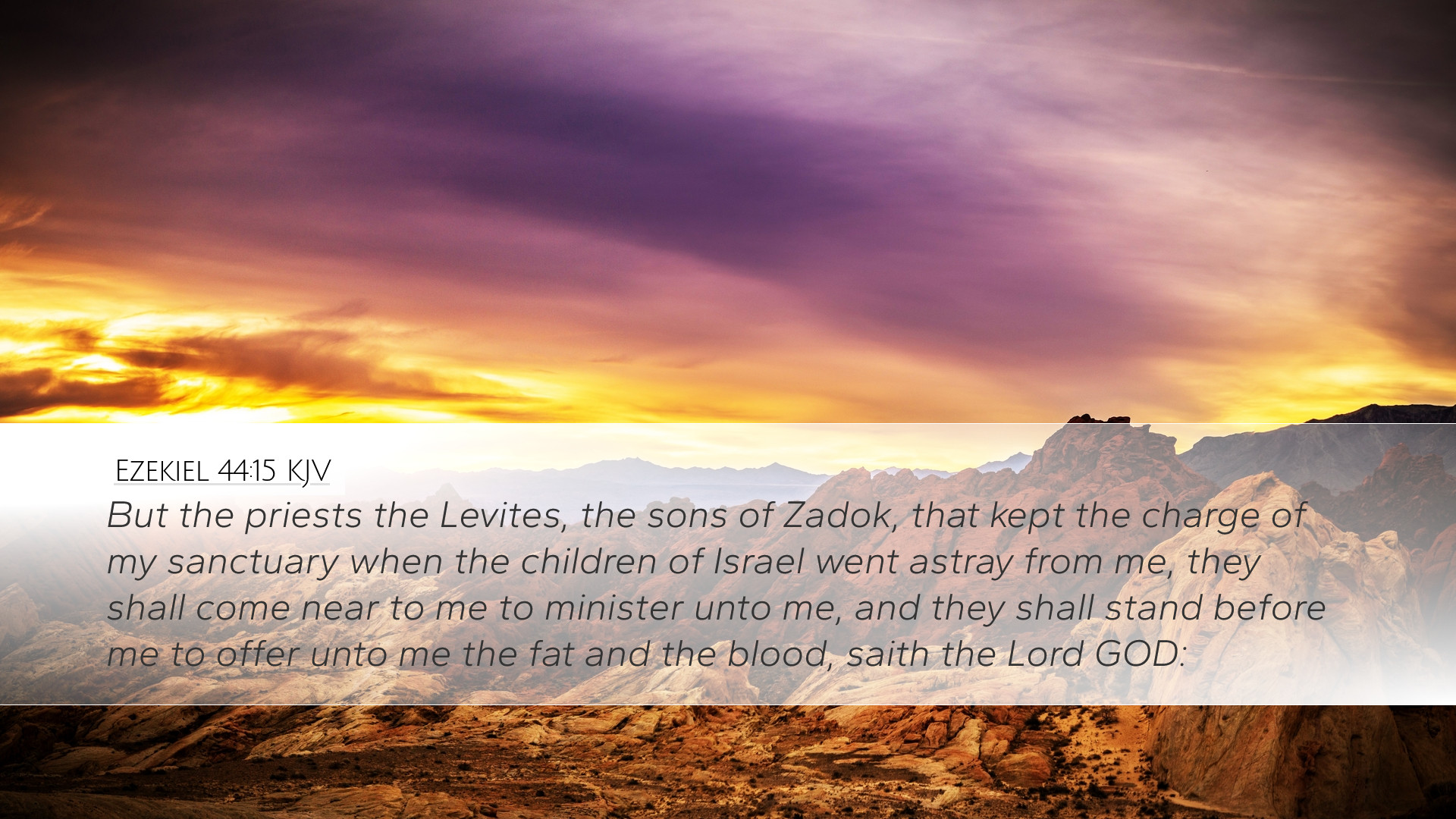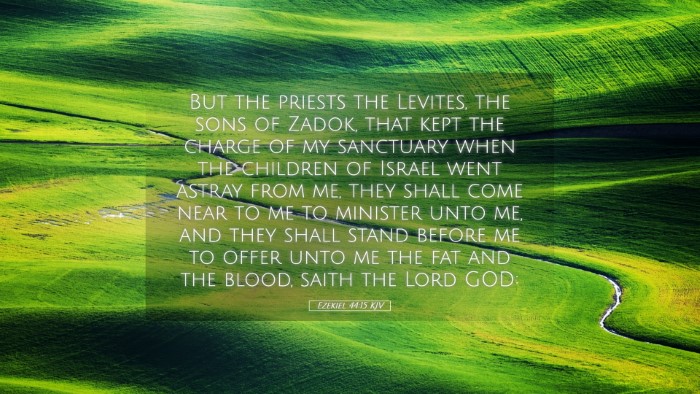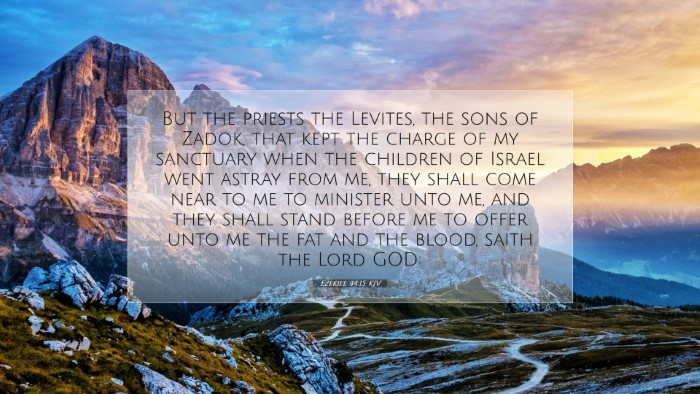Ezekiel 44:15 Commentary
Scripture Reference: Ezekiel 44:15 – "But the priests the Levites, the sons of Zadok, that kept the charge of my sanctuary when the children of Israel went astray from me, they shall come near to me to minister unto me, and they shall stand before me to offer unto me the fat and the blood, saith the Lord GOD."
Introduction
This significant verse in Ezekiel draws attention to the role of the priests, specifically the sons of Zadok, during a critical period in Israel’s history. The passage emphasizes faithfulness in service to God and sets delineations for sanctity and priestly duty. Various public domain commentaries provide insightful reflections on its implications.
The Sons of Zadok
Historical Context: The Levites, tasked with priestly duties, had various families, but the lineage through Zadok is particularly significant. This family was known for its faithfulness and adherence to God’s commands during Israel's apostasy. Commentaries by Matthew Henry and Albert Barnes highlight how this distinction signifies a covenantal promise for those who remain steadfast.
- Matthew Henry: He points to the remarkable loyalty of the sons of Zadok, emphasizing how their continuous service amidst national unfaithfulness earned them a privileged position before God.
- Albert Barnes: Barnes elaborates on the notion that the Zadokite priesthood symbolized enduring fidelity to God and His covenant, serving as a replacement for those who went astray.
Ministry and Service
Role of the Priests: The priests who remained faithful are granted a unique privilege—they will "come near" to minister to God. This nearness underscores the theological implications of access to God in the priestly role.
- Adam Clarke: Clarke asserts that this close relationship reflects a sanctified status that emphasizes holiness and separation from the common populace, which is critical in approaching the divine.
- Spiritual Meaning: This access also illustrates the concept of mediation between God and man. Those dedicated to God’s service reflect the necessity of intercession, a theme that resonates throughout scripture.
The Charge of the Sanctuary
Significance of Keeping the Charge: The phrase "kept the charge of my sanctuary" is pivotal. Maintaining the sacred space and adhering to divine ordinances parallels the responsibility Christians have today in safeguarding the sanctity of worship and the church community.
- Matthew Henry: He emphasizes that the priests had a responsibility not merely to perform rituals, but to protect the integrity of worship, which serves as a metaphor for church leadership today.
- Albert Barnes: Barnes notes that their vigilance in service was a manifestation of their love for God, which prompts contemporary leaders to examine their dedication to the spiritual welfare of their congregations.
Consequence of Apostasy
Lessons Learned: The passage starkly contrasts faithfulness with the potential consequences of apostasy among the people. The underlying message is that unfaithfulness leads to disfavor, while loyalty brings divine service reward.
- Adam Clarke: Clarke warns that Israel's failure is a lesson for all believers today about the importance of steadfastness in faith and observance of God's commands.
- Matthew Henry: He further stresses that while the collective failed, God always preserves a remnant faithful to His covenant, providing hope and assurance to adherents of faith.
Theological Implications
This verse amplifies themes of holiness, divine judgment, and restoration. The roles created through fidelity is exemplary for congregations today. Christian theology draws parallels between the Old Testament priesthood and the New Testament priesthood of believers, as delineated in 1 Peter 2:9.
- Spiritual Reflection: Believers today must reflect upon their charges and responsibilities, mirroring the faithful service of the sons of Zadok in their spiritual communities.
- Encouragement for Pastors: Pastors are encouraged to lead their congregations with integrity, maintaining the sacred trust God has placed on them to uphold the gospel in a world prone to distraction.
Conclusion
Final Thoughts: Ezekiel 44:15 serves not only as a historical reflection but pushes contemporary readers towards a deeper understanding of faithfulness, service, and the intrinsic qualities that define God's chosen servants. The insights from renowned commentaries enrich this understanding, offering lasting principles that resonate with current pastoral leadership and congregational living.


